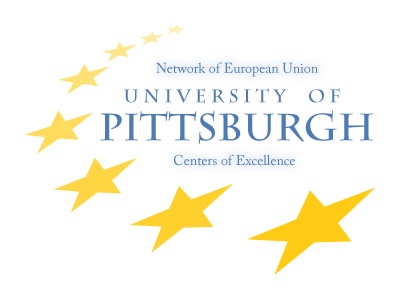- Focus and Scope
- Section Policies
- Peer Review Process
- Publication Frequency
- Open Access Policy
- Archiving
Focus and Scope
The European Union Center of Excellence at the University of Pittsburgh welcomes submissions of scholarly works appropriate for the Pittsburgh Papers on the European Union. Under the editorship of Professor Alberta Sbragia, Vice-Provost for Graduate Studies, the Papers are a free-standing scholarly papers series, meaning that papers will be published individually, allowing for somewhat longer manuscripts. Submissions are welcome from scholars and practitioners working in the United States, Europe, or elsewhere and at all career levels. Submissions are encouraged from all disciplines related to the contemporary or historical dynamics of the European Union. This could include domestic or transnational issues or relations among member states, accession or candidate states, or the EU within a regional or global context.
Section Policies
Articles
Peer Review Process
Publication in the Pittsburgh Papers is based on anonymous review. Submissions that are appropriate in topic and length are sent out for review under a double-blind process and a minimum of two reports on a submission are sought. Authors will typically be provided with referees' reports along with the editor's decision.
Publication Frequency
Typically, each issue of the Pittsburgh Papers will contain one free-standing paper (though proposals for multiple papers grouped together in themed issues may also be considered). Individual papers will be published as soon as they are ready. Consequently, frequency of publication is dependent on the number of submissions Pittsburgh Papers receives and the length of the review and revision process.
Open Access Policy
Upon final accpetance, Papers will be published eletcronically utilizing the Open Source Open Journal Systems (OJS). Papers will be available free of charge and without subscription costs. Metadata for the materials published in the Pittsburgh Papers will be freely available for harvesting by internet search engines, allowing for greater access by researchers worldwide through major indexes of scholarly research. Subject to originators' permissions, authors will be able to include links to documents, documentary collections, videos or other allowable sources of electronically available information.
There are no article processing charges, submissions fees, or any other costs required of authors to submit articles to this journal.
Our publisher, the University Library System at the University of Pittsburgh, abides by the Budapest Open Access Initiative definition of Open Access:
“By “open access” to [peer-reviewed research literature], we mean its free availability on the public internet, permitting any users to read, download, copy, distribute, print, search, or link to the full texts of these articles, crawl them for indexing, pass them as data to software, or use them for any other lawful purpose, without financial, legal, or technical barriers other than those inseparable from gaining access to the internet itself. The only constraint on reproduction and distribution, and the only role for copyright in this domain, should be to give authors control over the integrity of their work and the right to be properly acknowledged and cited.”
Researchers engage in discovery for the public good, yet because of cost barriers or use restrictions imposed by other publishers, research results are not available to the full community of potential users. It is our mission to support a greater global exchange of knowledge by making the research published in this journal open to the public and reusable under the terms of a Creative Commons CC-BY-NC-ND license.
Furthermore, we encourage authors to post their pre-publication manuscript in institutional repositories or on their Web sites prior to and during the submission process, and to post the Publisher’s final formatted PDF version after publication. These practices benefit authors with productive exchanges as well as earlier and greater citation of published work.
There are no article processing charges, submissions fees, or any other costs required of authors to submit articles to this journal.
Archiving
This journal utilizes the LOCKSS system to create a distributed archiving system among participating libraries and permits those libraries to create permanent archives of the journal for purposes of preservation and restoration. More...


 This journal is published by the
This journal is published by the 